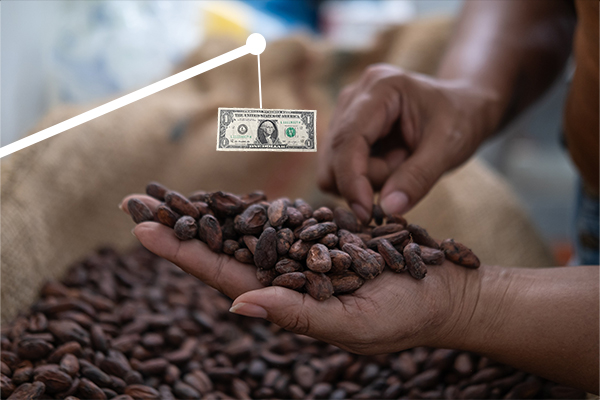Illegal mining, climate issues, diseases, and smuggling activities compelled export revenue of cocoa to fall by more than $500 million in the first quarter of 2024 as Ghana’s annual production numbers continue to tumble.
The drop, reported in the Bank of Ghana’s Summary of Macroeconomic and Financial Data for May 2024, comes at a time when the cedi is struggling against major trading currencies, having lost more than 20% of its value against the dollar since the beginning of the year.
The Bank of Ghana data revealed that cocoa export revenue experienced a significant decline, dropping from over $1 billion in the first quarter of last year to approximately $496 million this year. This marks the lowest level in nearly nine years.
According to a Bloomberg report, “the currency of the world’s second-biggest cocoa producer depreciated 0.2% to 14.9335 per dollar by the close of trading in Accra [yesterday], the lowest level since at least 1994 when Bloomberg began compiling the data.”
The report also indicated that the current free fall of the cedi against the American greenback makes it “the fourth-worst performer among roughly 150 currencies tracked by Bloomberg worldwide, after the Egyptian Pound, Nigerian Naira and the Lebanese Pound.”
Cocoa on a decline, cedi struggles
Cocoa is a strategic commodity in Ghana and has been the backbone of its economy since the colonial period. In essence, when cocoa “coughs,” the Ghanaian economy catches a cold, especially its local currency, the cedi. In fact, Ghana’s smaller cocoa harvest in the 2023/24 season has hit the country’s external payments position, as its trade surplus fell by more than half in the first two months, posing a risk to the exchange strength of the cedi, which has lost more than 20% against the US dollar.
The industry regulator, Ghana Cocoa Board (COCOBOD), is aware that smuggling is significantly reducing its share of global cocoa production, which has dropped from 20% to 13%. The upcoming crop season looks challenging for Ghana, as illegal mining activities continue to threaten its projected yields. The sale of cocoa farmland to illegal miners, coupled with the pollution and destruction of water bodies and lands, jeopardizes Ghana’s cocoa yield for the 2024-25 season, which could fall below 400,000 tons.
For COCOBOD to secure its next cocoa syndicated loan, it needs to assure investors that it can guarantee the production of beans to match the target loan figure of $1.5 billion. Already, the regulator’s target for this year was truncated from $1.2 billion to $800 million, for which it was able to provide beans for only $600 million—the remaining $200 million was canceled as COCOBOD could not provide beans to back it.
For Ghana to obtain more than it was able to gather this year from the syndication exercise, it needs to prove to investors that it can produce more beans in the next season. Ensuring the necessary bean production will be difficult, and one reliable way to prevent the smuggling of an additional 200,000 tons next season is to increase the farm gate price. However, this would impose a significant fiscal constraint on COCOBOD, which is already struggling to service its current debt obligations.








